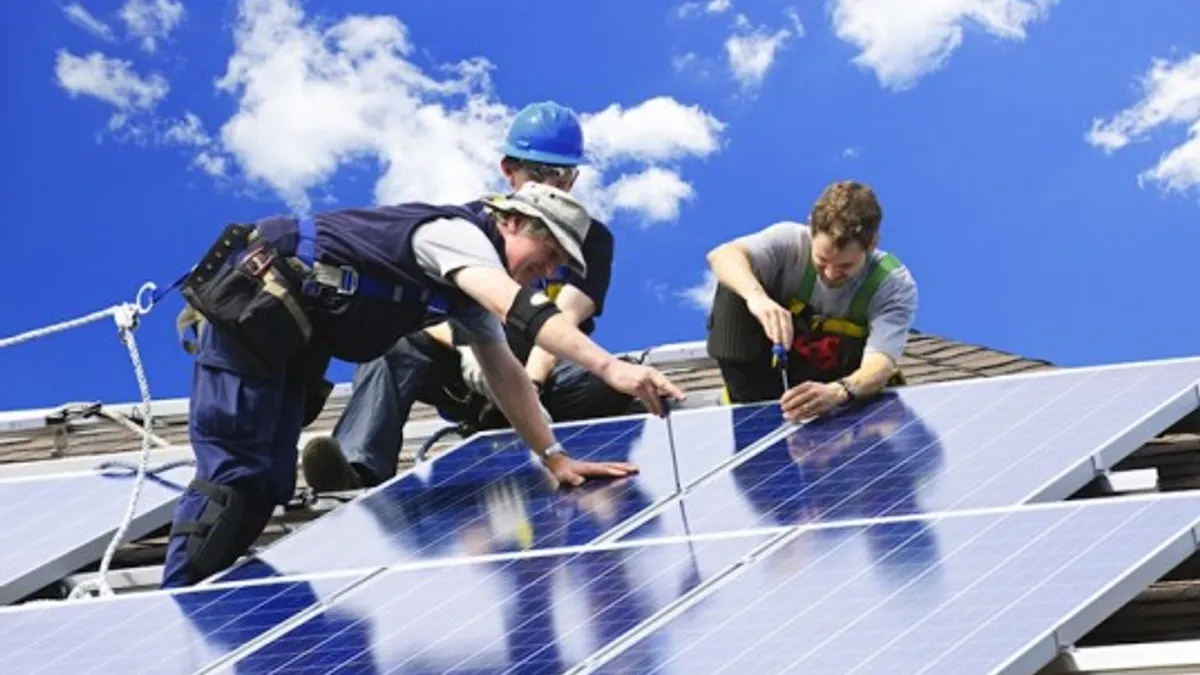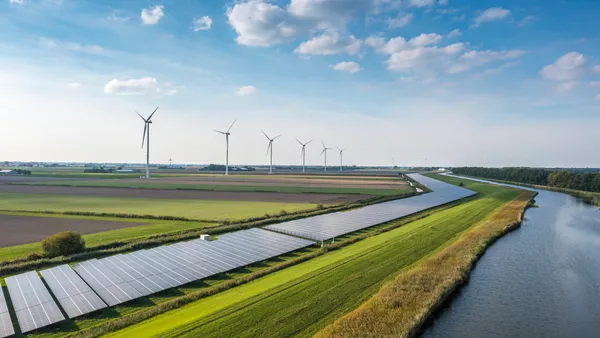Dive Brief:
- Four utilities and Florida's attorney general are attempting to block a solar ballot initiative they believe is confusing, potentially misleading and could leave consumers vulnerable.
- Florida Power & Light, Duke Energy, Tampa Electric Co. and Gulf Power asked the Florida Supreme Court to leave the measure off next year's ballot, arguing it leaves ratepayers stripped of basic consumer protections.
- Floridians for Solar Choice filed legal briefs this week supporting its ballot initiative, which it argues will remove barriers limiting ownership models of solar generation.
Dive Insight:
The fight over a Florida ballot initiative is now before the state's Supreme Court, which must review the proposed language to ensure it meets standards for clarity and purpose.
Though it has a long way to go — Floridians for Solar Choice need about 600,000 more signatures to ultimately place the measure on the November 2016 ballot — the group argues the ballot initiative is precise, clearly-worded and would support consumer choice. The group says Florida is one of only a few states with laws expressly dictating consumers must buy their solar power from electric utilities.
“We look forward to Supreme Court approval of the clearly-stated petition language in order to place solar choice on the ballot in 2016," the group said in a statement. "We expected that the petition would upset the status-quo and generate opposition, however, we believe that briefs filed by opponents don’t present a viable threat to the success of our effort to bring free market principles and consumer choice to all Floridians."
But Jacksonville Business Journal reports the state's attorney general and four utilities have filed petitions to block the initiative. According to the paper, FPL issued a statement saying "the proposed amendment fails in several respects to meet basic standards that are intended to protect voters from being misled or confused. Indeed, the amendment's language is largely unclear, but one thing is certain: It would amount to an unprecedented constitutional ban on consumer protection."
Florida Attorney General Pam Bondi filed a brief as well, saying the proposal could create a new class of utilities.
"By all accounts, solar energy offers great promise, particularly in the Sunshine State," Bondi wrote. "It is therefore unsurprising that a ballot initiative promising to address 'barriers' to solar electricity might enjoy intuitive appeal. But rather than address 'barriers' to solar energy, the proposed Amendment removes longstanding consumer protections and creates a new class of electric utilities."
Answer briefs are due at the end of the month and oral arguments are set for September.















